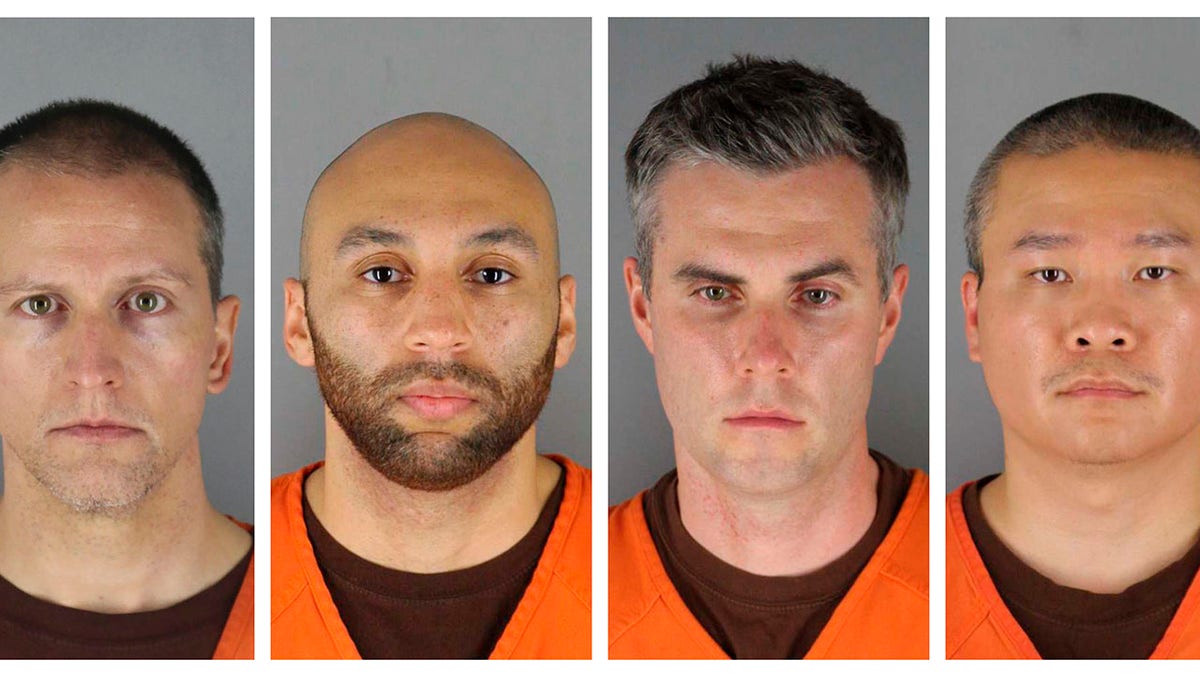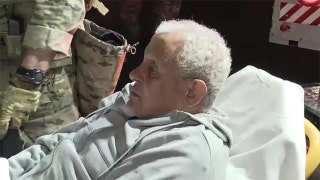Fox News Flash top headlines for January 26
Fox News Flash top headlines are here. Check out what's clicking on Foxnews.com.
The Minnesota judge overseeing the trials of four former Minneapolis police officers accused in the death of George Floyd has ruled that details from Floyd's prior arrests will not be admissible, but jurors will be allowed to hear details about two previous incidents involving the officer who was seen on video kneeling on Floyd's neck, a judge ruled.
Judge Peter A. Cahill in an order Tuesday denied motions to use Floyd’s past encounters with law enforcement as evidence. The judge also rejected the request that evidence related to 16 incidents involving the officers be included, according to USA Today.
Jurors will, however, be allowed to hear details about two previous incidents involving the officer accused of kneeling on Floyd's neck, Derek Chauvin, Cahill ruled. The jurist said he would explain his decisions at a later date.
Chauvin faces charges of second-degree murder and manslaughter. Cahill ruled earlier this month that Chauvin would stand trial separately from the others.
Defense attorneys had asked for permission to bring up details about Floyd's prior arrests, including a May 2019 arrest in which they said he acted in a way that was similar to his behavior on the day of his death. They also wanted to introduce evidence of a 2007 armed robbery arrest in Texas. In court documents, one of the officer's attorneys described Floyd as an ex-convict, a violent defendant and a liar.

This combination of photos provided by the Hennepin County Sheriff's Office in Minnesota on Wednesday, June 3, 2020, shows Derek Chauvin, from left, J. Alexander Kueng, Thomas Lane and Tou Thao. Chauvin is charged with second-degree murder of George Floyd, a black man who died after being restrained by him and the other Minneapolis police officers on May 25. Kueng, Lane and Thao have been charged with aiding and abetting Chauvin. (Hennepin County Sheriff's Office via AP) (AP)
On May 6, 2019, Floyd had allegedly swallowed "large quantities" of drugs "in an attempt to avoid arrest," according to court records. He was also accused of "diversionary behavior such as crying and act[ing] irrationally."
DEREK CHAUVIN TO BE TRIED SEPARATELY IN GEORGE FLOYD CASE
Prosecutors had asked Cahill to allow them to introduce evidence that showed Chauvin had used neck or head and upper body restraints seven times before, including four times in which prosecutors say he went too far.
Cahill ruled that prosecutors can't bring up most of those prior cases during Chauvin's trial, but they can tell the jury about a June 2017 arrest in which Chauvin restrained a female by placing his knee on her neck while she was prone on the ground.
The judge also ruled that prosecutors can tell jurors about an August 2015 incident in which Chauvin saw other officers place a suicidal and intoxicated male into a side-recovery position after using a stun gun on him. Prosecutors had noted that the officers received a commendation, after medical professionals said the male could have died if they had prolonged his detention. Cahill said prosecutors can mention it only if they can provide clear and convincing evidence that Chauvin was present when the medical professional made those remarks.
Tou Thao, J. Alexander Kueng and Thomas Lane each face charges of aiding and abetting second-degree murder as well as aiding and abetting second-degree manslaughter. Their trial will begin in August.
Cahill's order also denies the state's request to bring up prior on-the-job incidents involving Thao and Kueng, again without providing a reason.
Floyd, a Black man, died on May 25 after Chauvin, who is White, pressed his knee against Floyd’s neck while he was handcuffed face down on the street. Police were investigating whether Floyd used a counterfeit bill at a nearby store. In a video widely seen on social media, Floyd could be heard pleading with officers for air, saying he couldn’t breathe.
CLICK HERE TO GET THE FOX NEWS APP
The incident sparked nationwide protests against police brutality and racial injustice, some of which devolved into riots, and a left-wing push to "defund the police."
All four officers were fired from the Minneapolis Police Department.
The Associated Press contributed to this report.









































